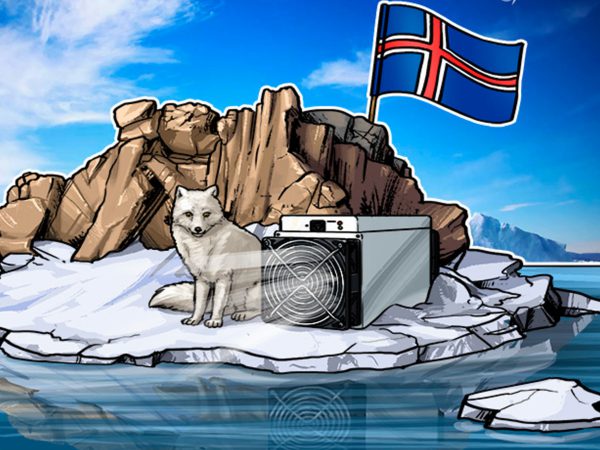Having about 340,000 inhabitants, a unitary parliamentary republic, Iceland has become a favorable destination for Crypto mining due to its location, climate and volcanoes.
Sounds interesting, isn’t it? This North Atlantic country covers an area of 103,000 kilometers, and it is estimated that about 8% of the world’s Bitcoin supply is mined in Iceland data centers.
These business perspectives might raise questions on the legality of virtual assets and the governments’ attitude towards them. So, let’s clarify, what is legal, what is not?
What says the Regulation
The government does not recognise cryptocurrencies as a legal tender, as the central bank has the exclusive authority to mint money or issue currency which can be used to intermediate the exchange of goods and services, as stated in paragraph 1, article 5 of law number 36/2001. Hence, the current regulatory situation remains unclear and virtual assets remain unregulated and aren’t subject to legislation on payment services or electronic currency. The Central Bank does not have the power to supervise trading with cryptocurrencies nor has a real oversight over mining, as it once commented that – “Cryptocurrency markets don’t require a license, they are not subject to laws no. 108/2007 on stock exchanges and aren’t subject to Central Bank of Iceland’s Financial Supervisory Authority’s supervision.” Insufficient regulation might leave investors with little to no protection, thus the Central Bank warned citizens against the risk of using cryptocurrencies due to its market price volatility. In other words, Crypto trading is not illegal activity, the officials just want citizens to be cautious while they are carrying out such transactions.
In 2017, The Icelandic Central Bank amended the rules banning the outflow of krónur from the country to enable cross-border transactions, which finally lifted the indirect prohibition that the Central Bank had put on digital currencies because cross-border transactions of the nation’s currency are now allowed. Nevertheless, there are still limitations and restrictions which might limit cryptocurrency transactions. For instance, there is a requirement to “notify the Icelandic Central Bank of international purchases of Icelandic krónur and derivative transactions, and rules also require a special reserve when there is an inflow of a foreign currency into Iceland.” Moreover, restrictions remain in place for:
“i) derivatives trading for purposes other than hedging;
ii) foreign exchange transactions carried out between residents and non-residents without the intermediation of a financial undertaking; and
iii) in certain instances, foreign-denominated lending by residents to non-residents.”
Cryptocurrencies can be considered “foreign exchange transactions carried out between residents and non-residents without the intermediation of a financial undertaking,”. Using crypto-currencies de-jure is prohibited if they lead to capital movements outside of the country. These strict currency exchange regulations led to the establishment of Auroracoin – Iceland’s cryptocurrency made available only to Islanders. On the other hand, the Central Bank has not yet commented on the status of cryptocurrency transactions under these restrictions, thus the crypto-mining and investing is not expressly prohibited.
Having said that, it is worth to note that all Fintech activities, and businesses that deal with cryptocurrencies and digital assets (including NFTs) must adhere to the rules and regulations of trade prescribed by the Icelandic government. The regulation around cryptocurrency with a primary focus on likely risk with money laundering and the use of cryptocurrencies to finance criminal activities, to be in harmony with EU/EEA laws and directives.
Prospects for Mining business
It is no secret that Crypto mining consumes more energy than any other industry, as miners run their computers and data centers 24/7, 365 days a year. Iceland is seen as a paradise for miners as a country with a rich source of low-cost geothermal renewable energy due to volcanoes, which significantly lowers expenses and allows to gain higher profit. The Arctic air reduces the costs of air conditioning, as it naturally keeps computer server rooms cool, whilst they generate massive amounts of heat operating at maximum capacity. As Iceland’s economy relies mostly on tourism, Mining can be considered as an alternative major source of revenue.
Сonclusion
Available data indicate that data centers of the Island consume 5% of the island’s electrical power, and of that an estimated 90% is used for mining cryptocurrencies. Contemporarily, today Iceland is the home for some of the world’s largest bitcoin mining facilities. High energy utilization raises concerns over the sustainability of this business. In 2018, the Washington Post equated Iceland’s situation to a “21st-century gold-rush”, highlighting fears of some power producers, who are afraid that it will not be capable of supplying the rising demand. Some reports forecast that Iceland may decide to slow down its investment regime caused by “increasingly stretched electricity generation capacity.” All in all, the country seems to support the growing area of FinTech, as its revolution is in full tilt and is not predicted to slow down in the near future.
The content of this article is intended to provide a general guide to the subject matter, not to be considered as a legal consultation.
Photo credits











